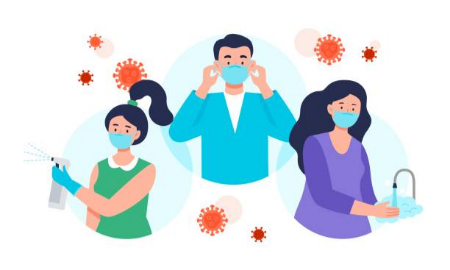Aging is a natural stage of life that is accompanied by physical, mental and social changes. As they age, seniors face problems that may affect their ability to perform daily activities and live independently. In this article, they are faced with it.
1. Physical problems of the elderly
Decreased physical strength and movement
With age, muscle strength and movement ability decrease. Many elderly suffer from problems such as muscle weakness, arthritis, and reduced joint flexibility, which can limit their daily movement. Balance problems can also cause falls and serious injuries such as fractures.
Vision and hearing problems
Vision and hearing loss is one of the common problems in the elderly. Diseases such as cataracts, macular degeneration, and glaucoma can cause vision loss. Hearing loss can also lead to communication difficulties and isolation.
Chronic diseases
Many seniors are dealing with chronic diseases such as diabetes, high blood pressure, heart disease, and arthritis. These conditions require ongoing medical care and may require changes in diet, exercise, and regular medication use.
2. Mental problems of the elderly
Depression and anxiety
Loneliness, reduced social connections, loss of friends and family members, and physical limitations can lead to increased depression and anxiety in the elderly. Psychological changes caused by feelings of worthlessness or inability to perform daily activities also add to mental problems.
dementia
Dementia is one of the serious mental problems in the elderly. Diseases such as Alzheimer’s can affect memory, the ability to think and judge. These diseases may make the elderly unable to properly care for themselves or make important decisions.
3. Social problems of the elderly
Isolation and loneliness
Many elderly people feel lonely due to the loss of spouse, friends or relatives and reduced social connections. Living alone or away from family and friends can lead to social isolation and psychological problems such as depression.
Lack of social support
Some elderly need more support from family, friends and society due to physical and mental limitations. Lack of adequate support systems and lack of access to appropriate care services can lead to serious problems in their lives.
4. Economic problems of the elderly
Limited income
Many seniors live on limited income from pensions and pensions. This income may not be enough to cover daily living expenses, medical care, and other needs. Additional expenses such as medications, special care, and medical needs can also put a lot of financial strain on seniors.
Lack of access to proper health and care services
In many countries, access to appropriate health services for the elderly is limited. The lack of proper health insurance, high costs and lack of financial ability to pay medical expenses can cause serious problems for the elderly.
5. Problems related to elderly nutrition
malnutrition
Many seniors are malnourished due to decreased appetite, dental problems, or chronic diseases. Inadequate or incorrect nutrition can lead to more problems such as a weak immune system, weight loss and chronic fatigue.
Problems in food preparation and consumption
Elderly people who live alone or have mobility problems may face problems in preparing and consuming food. These people need extra help to ensure that they have a healthy diet.
6. Elderly safety problems
Falls and physical injuries
Falling is one of the serious problems for the elderly that can lead to severe physical injuries such as hip or spine fractures. Many elderly people are at risk of falling due to muscle weakness, balance problems and reduced vision.
Abuse and neglect
The elderly may be subjected to physical, psychological or financial abuse. Also, neglecting the necessary care and support for the elderly is one of the common problems that needs special attention.
Frequently asked questions about the daily problems of the elderly
1. Why do the elderly face more physical problems?
With age, the body of the elderly undergoes natural changes, which include decreased muscle strength, decreased flexibility, and joint problems such as arthritis. These changes cause limitations in movement and increase the risk of falls and physical injuries. Also, chronic diseases such as diabetes and high blood pressure are more common at this age.
2. How does depression occur in the elderly?
Depression in the elderly can occur due to loneliness, loss of loved ones, health problems, reduced physical and mental abilities, and feelings of worthlessness. Reduction of social connections and isolation are also important factors that lead to depression in this group.
3. What factors cause vision and hearing loss in the elderly?
Vision and hearing loss in the elderly is mainly caused by age-related diseases such as cataracts, macular degeneration and glaucoma for vision and auditory nerve problems for hearing. These are natural changes associated with aging and may cause problems in performing daily tasks.
4. What effect does dementia have on the life of the elderly?
Dementia, like Alzheimer’s disease, can impair the memory, thinking ability and judgment of the elderly. This condition may make the elderly unable to do simple daily tasks and need help for basic care. This disease progresses over time and severely reduces the quality of life of the elderly.
5. What social problems are common in the elderly?
Isolation and loneliness are common social problems in the elderly. Losing a spouse, friends or family members and reducing the physical ability to participate in social activities reduces social connections and, as a result, isolates the elderly. This can lead to psychological problems such as depression.
6. How to help the elderly who have movement problems?
Assistive devices such as canes, walkers or wheelchairs can be used to help elderly people with mobility problems. Also, their living environment should be made safer to reduce the risk of falls, for example by installing handrails on stairs, removing slippery carpets, and using proper lighting in the home.
7. What strategies are there to reduce the risk of malnutrition in the elderly?
To reduce the risk of malnutrition in the elderly, a balanced and nutrient-rich diet should be used. Also, it is necessary to prepare foods that are easy to chew and suitable for the dental and digestive needs of the elderly. It is also important to prepare small and varied meals, take vitamin supplements when needed and ensure adequate hydration.
8. How to prevent elderly people from falling?
To prevent the elderly from falling, the home environment must be secured. Installing handrails in bathrooms and stairways, removing obstacles and slippery carpets, wearing appropriate shoes, and increasing lighting in dark places can help reduce the risk of falls. Also, encouraging the elderly to do strengthening and balance exercises such as yoga and walking is also useful.
9. What factors make the elderly need more social support?
Factors such as reduced physical ability, chronic diseases, isolation, and reduced cognitive abilities may cause the elderly to need more social support to perform daily activities and personal care. Also, some elderly need more support from family and society due to financial limitations or lack of access to proper health and care services.
10. What is the role of the family in improving the quality of life of the elderly?
The family plays a very important role in improving the quality of life of the elderly. Emotional support, regular social communication, help in performing daily activities and meeting the health and medical needs of the elderly are among the duties of the family. The active presence of the family in the life of the elderly can prevent isolation, depression and mental problems and give them a sense of value and security.
Summary:
The elderly face various physical, psychological, social, economic and nutritional problems that require special attention from the family, society and governments. By providing social support, proper health and medical care, and paying attention to their special needs, we can help improve the quality of life of the elderly and prevent many problems. Creating suitable environments for the lives of the elderly and increasing public awareness about their needs and problems is an important step towards ensuring the well-being and health of this group of society.










